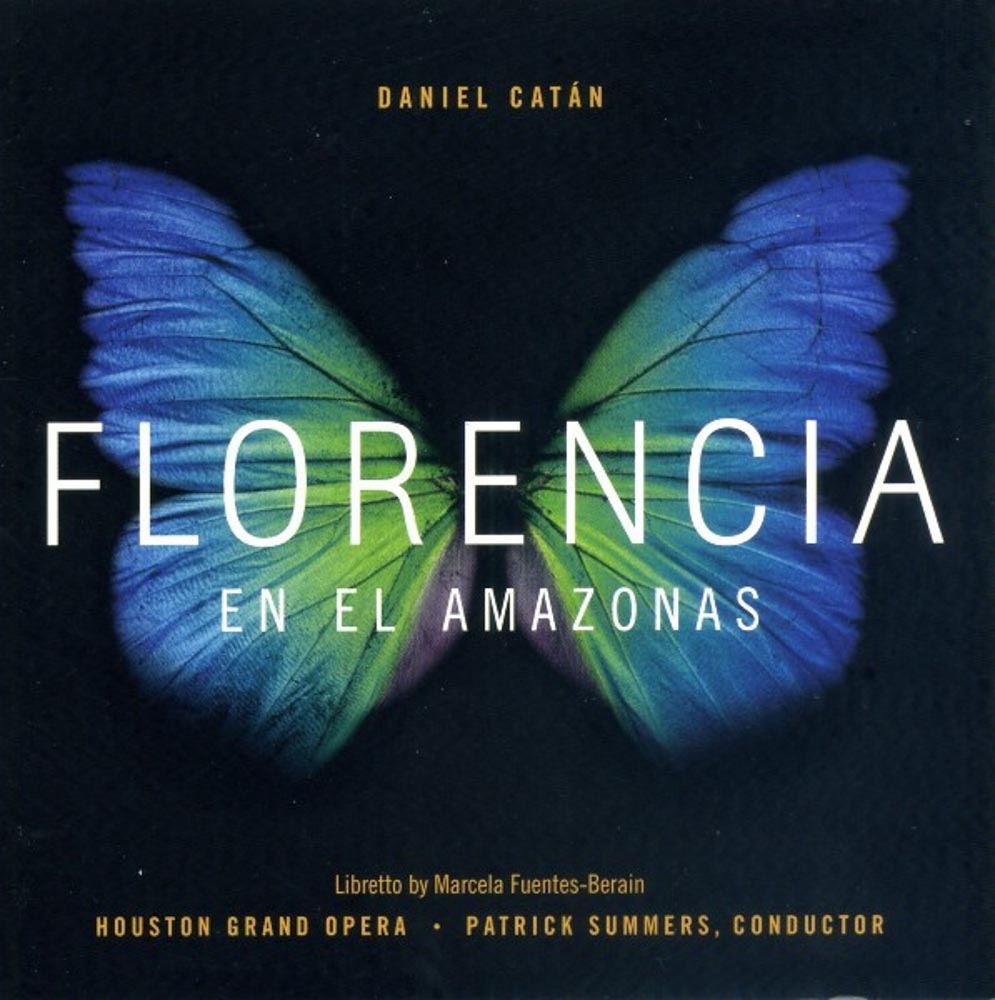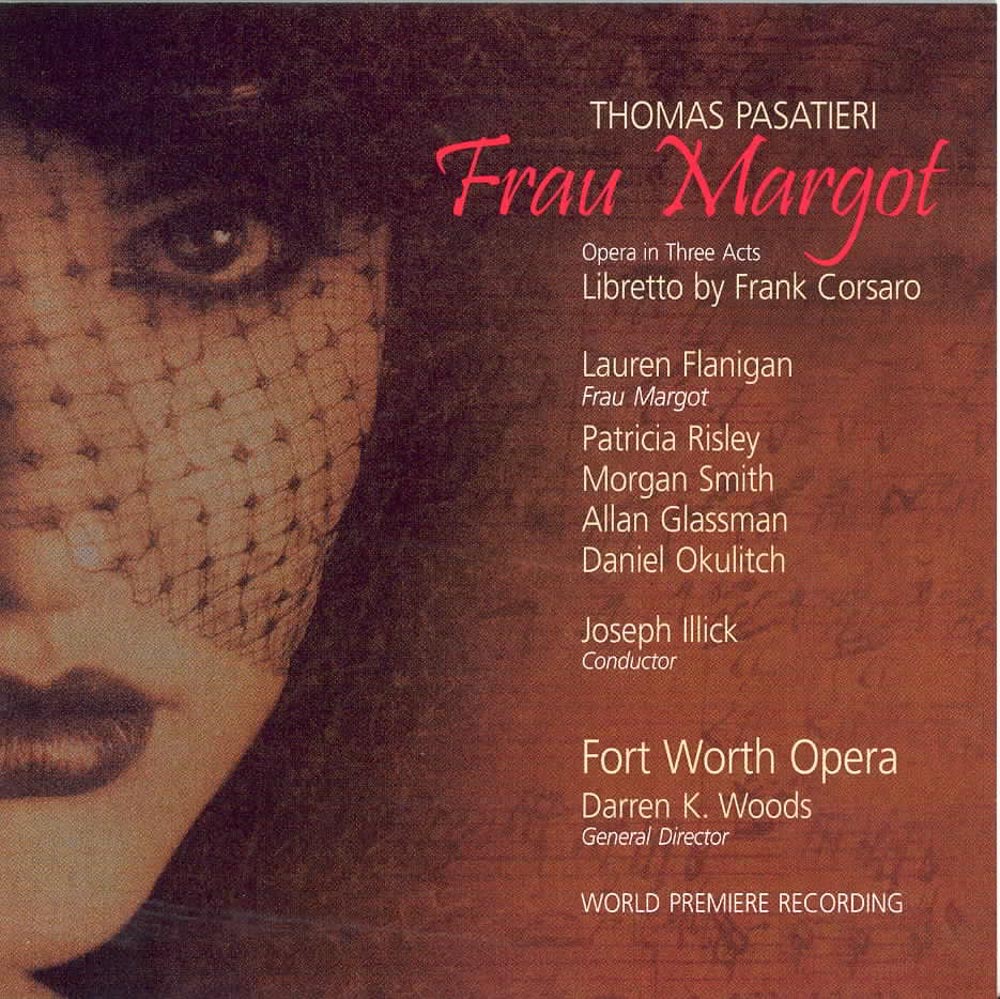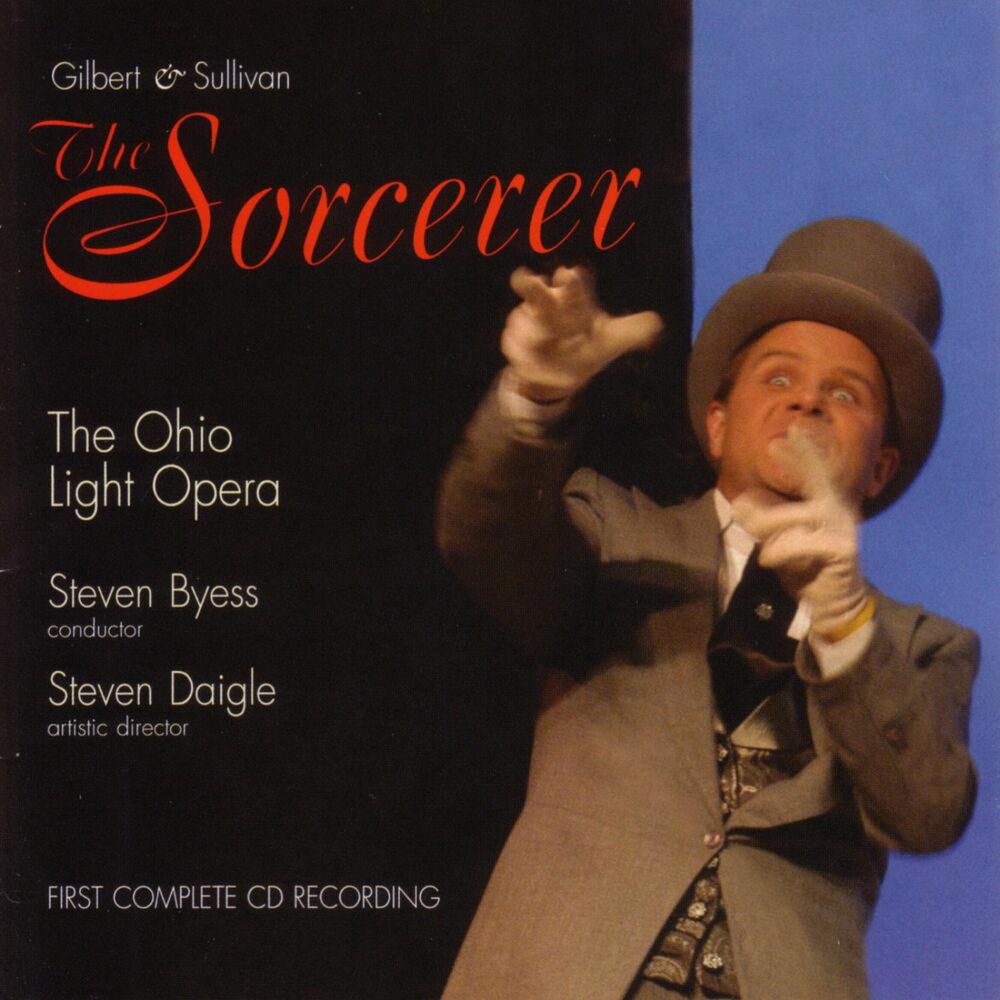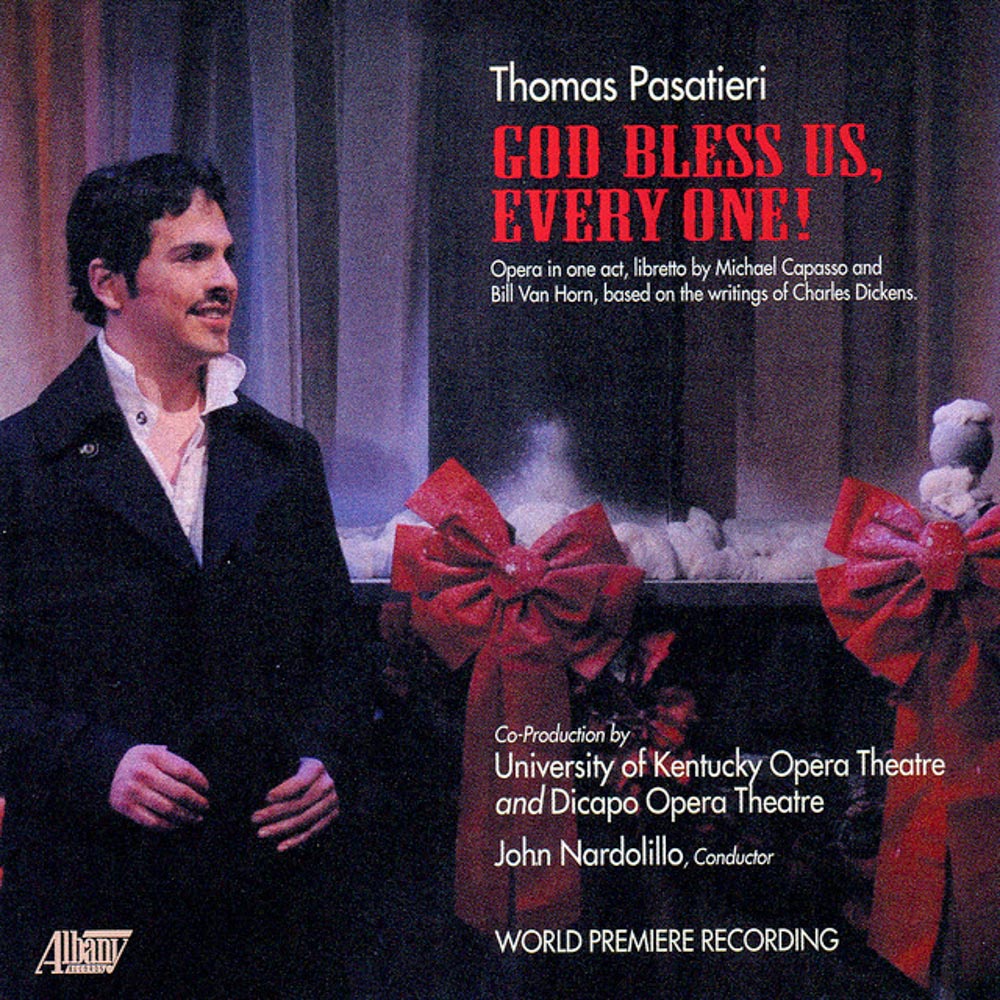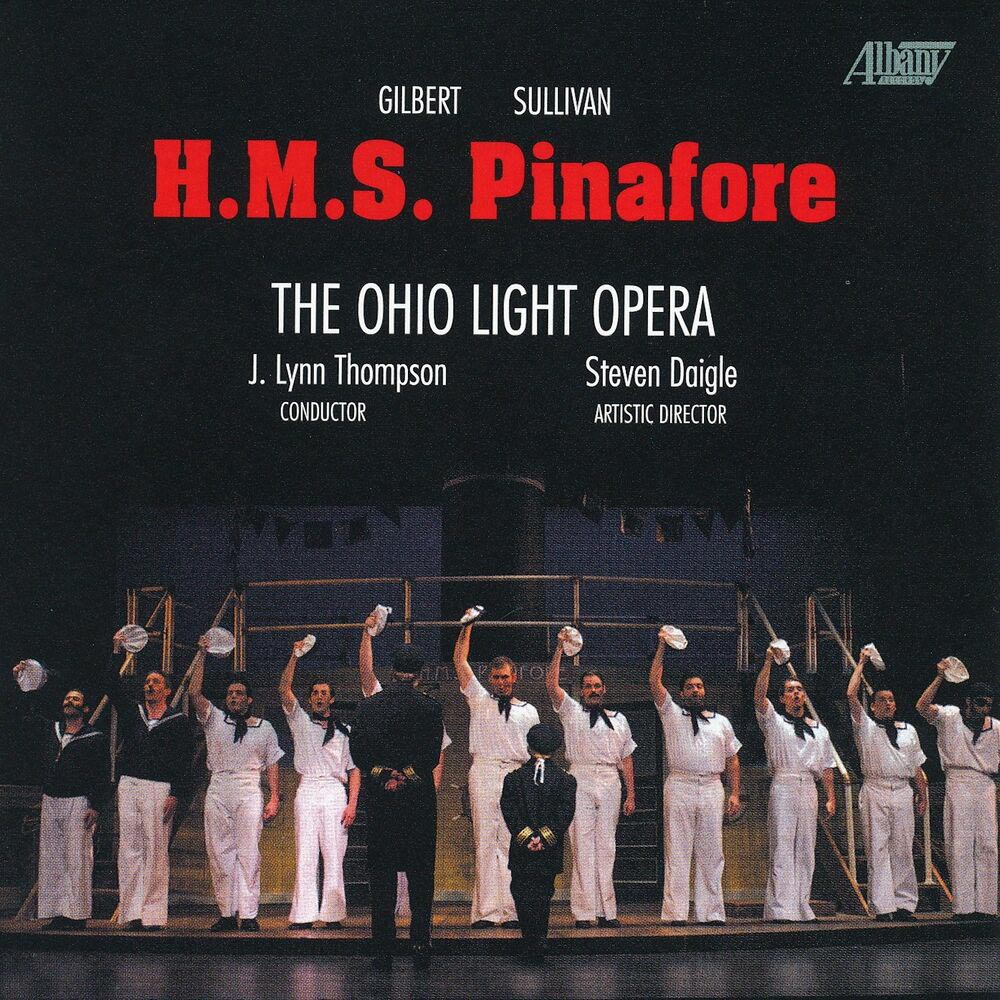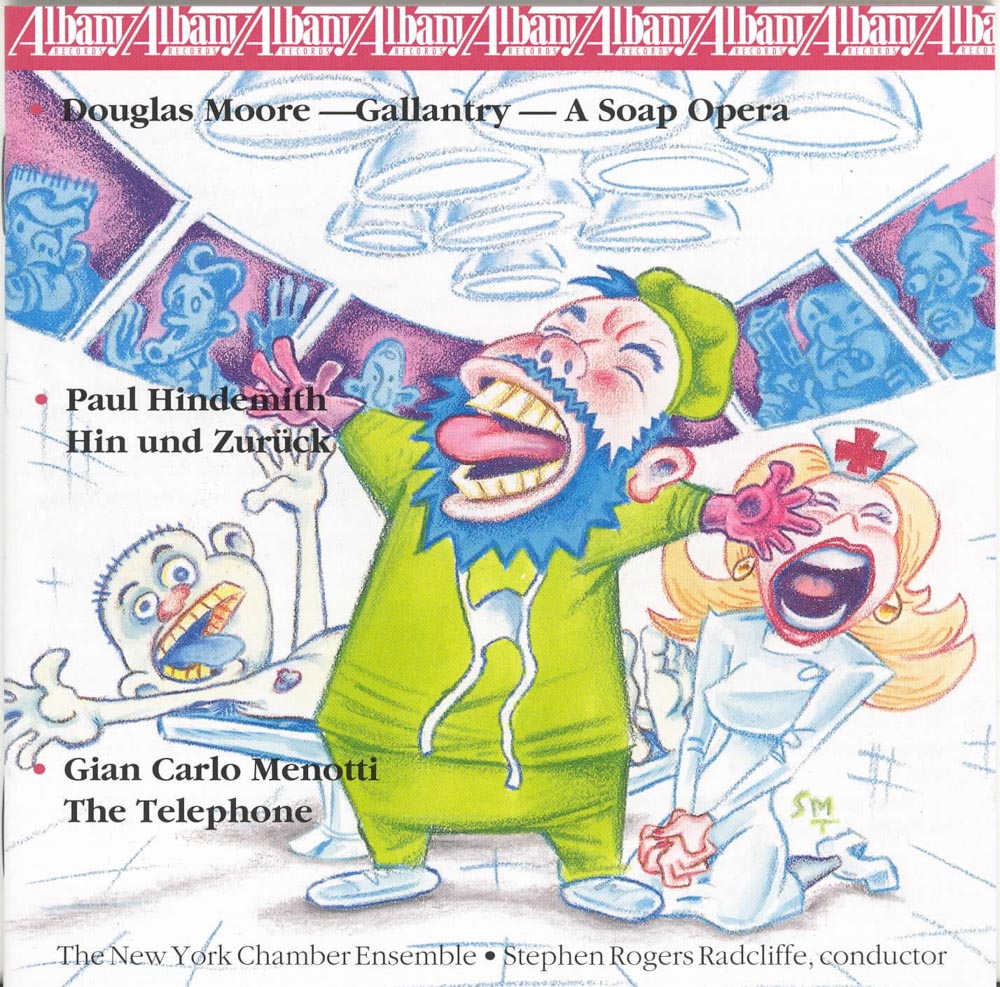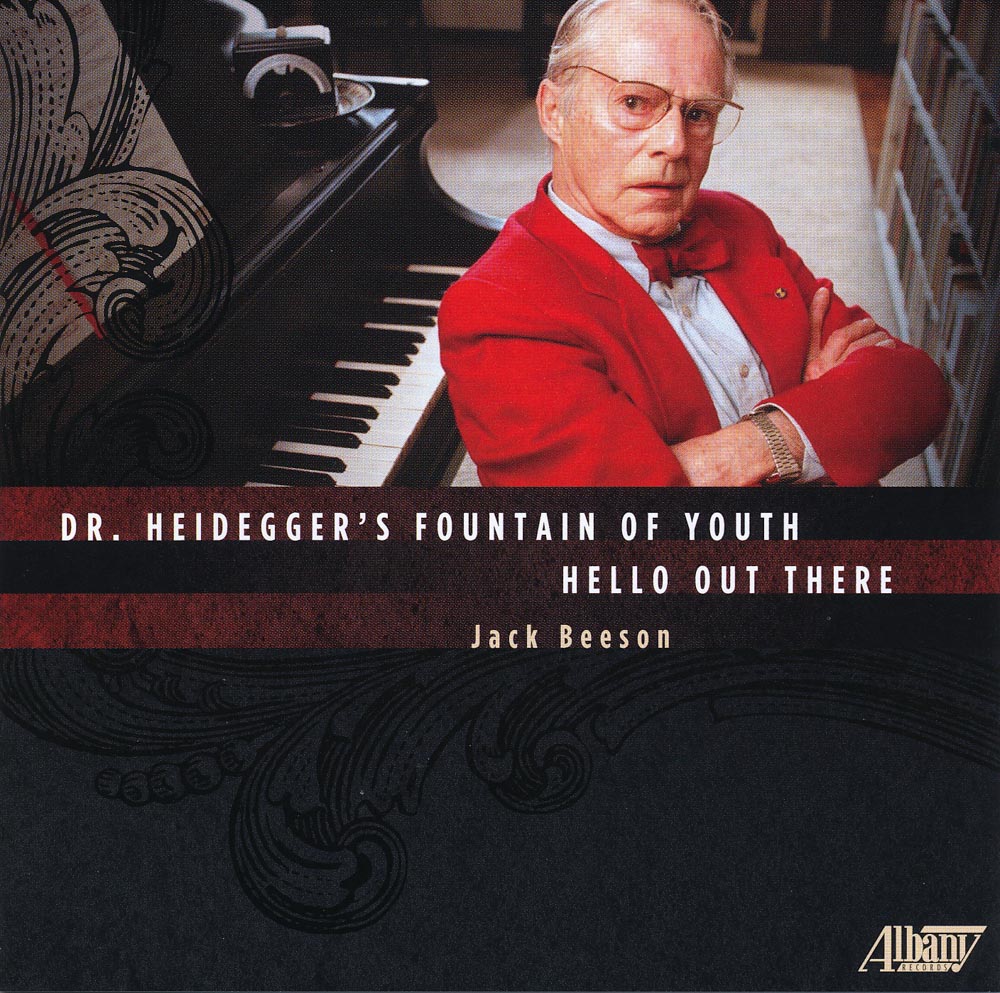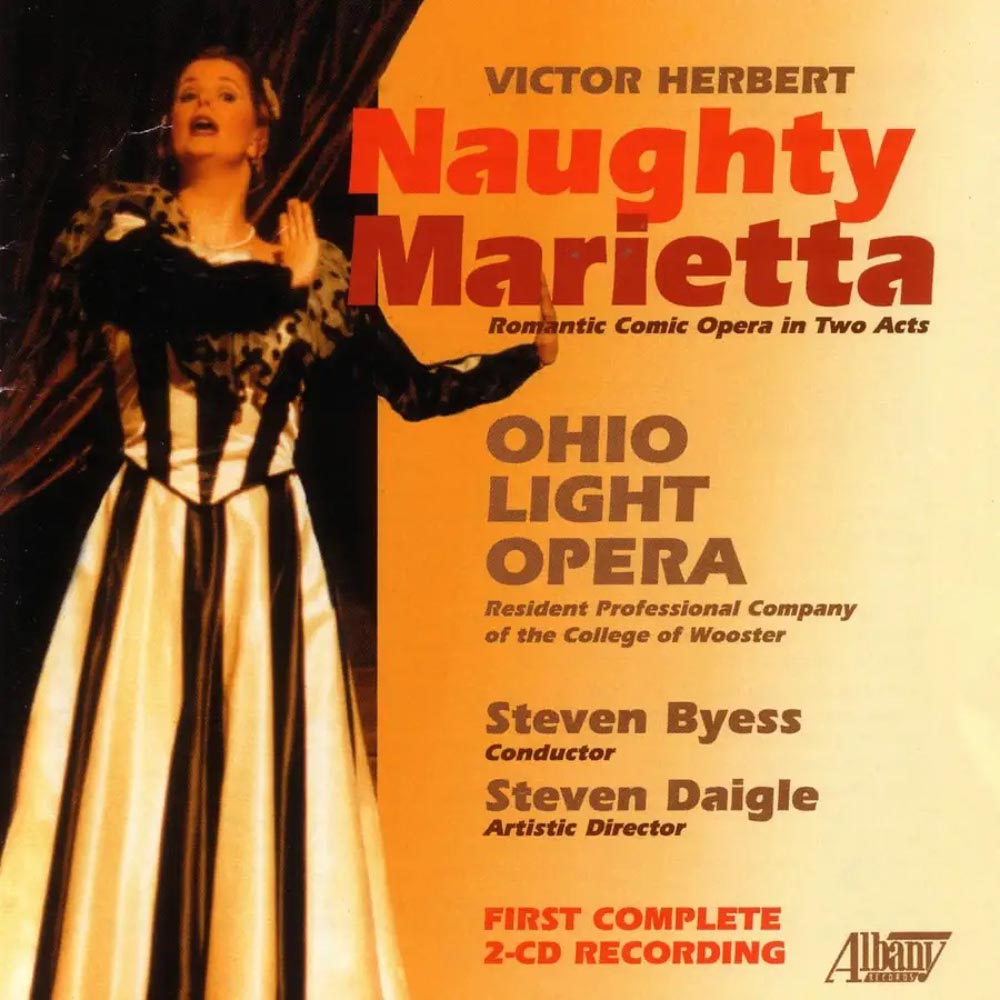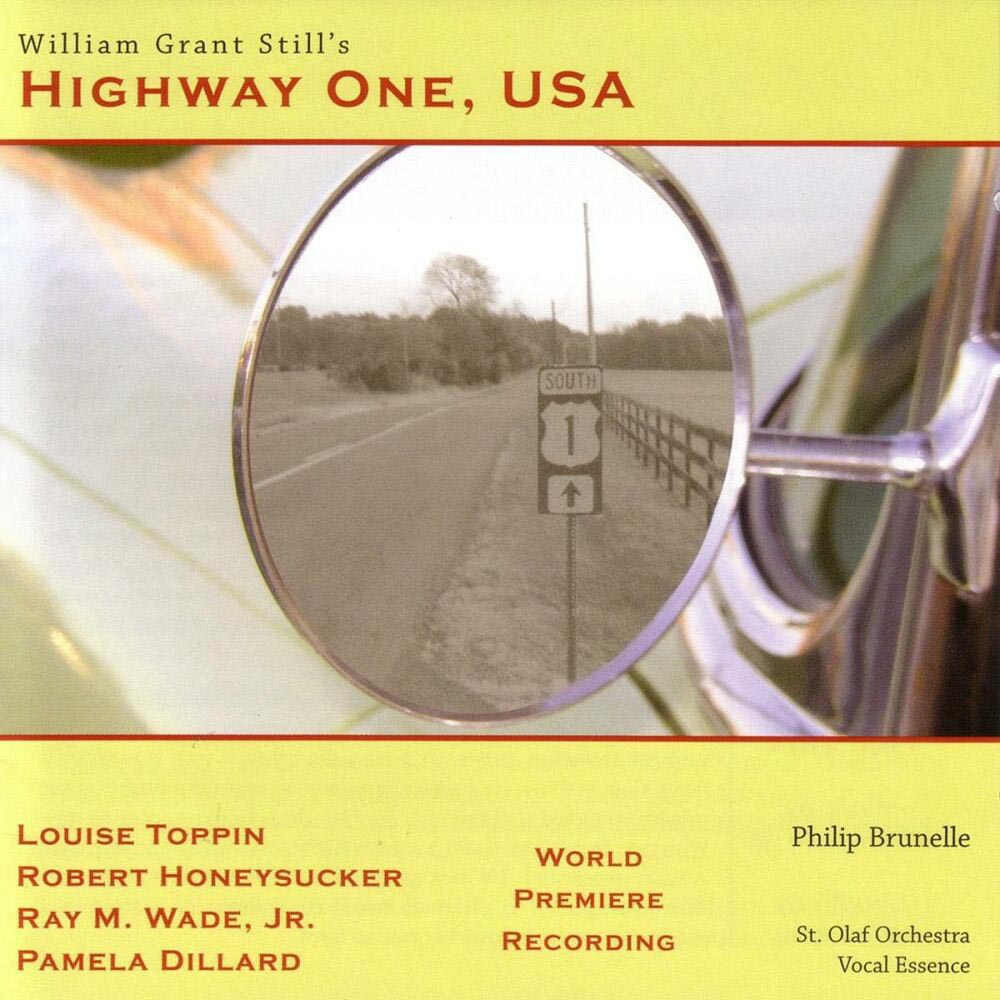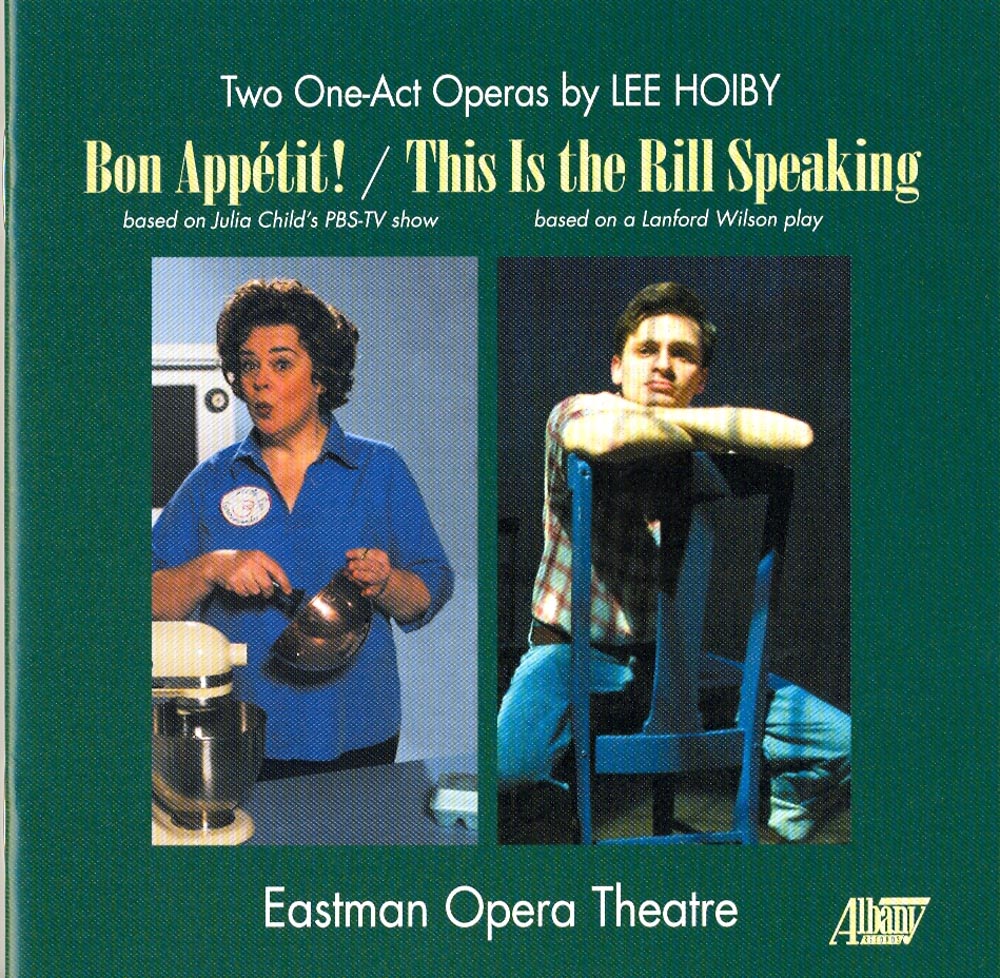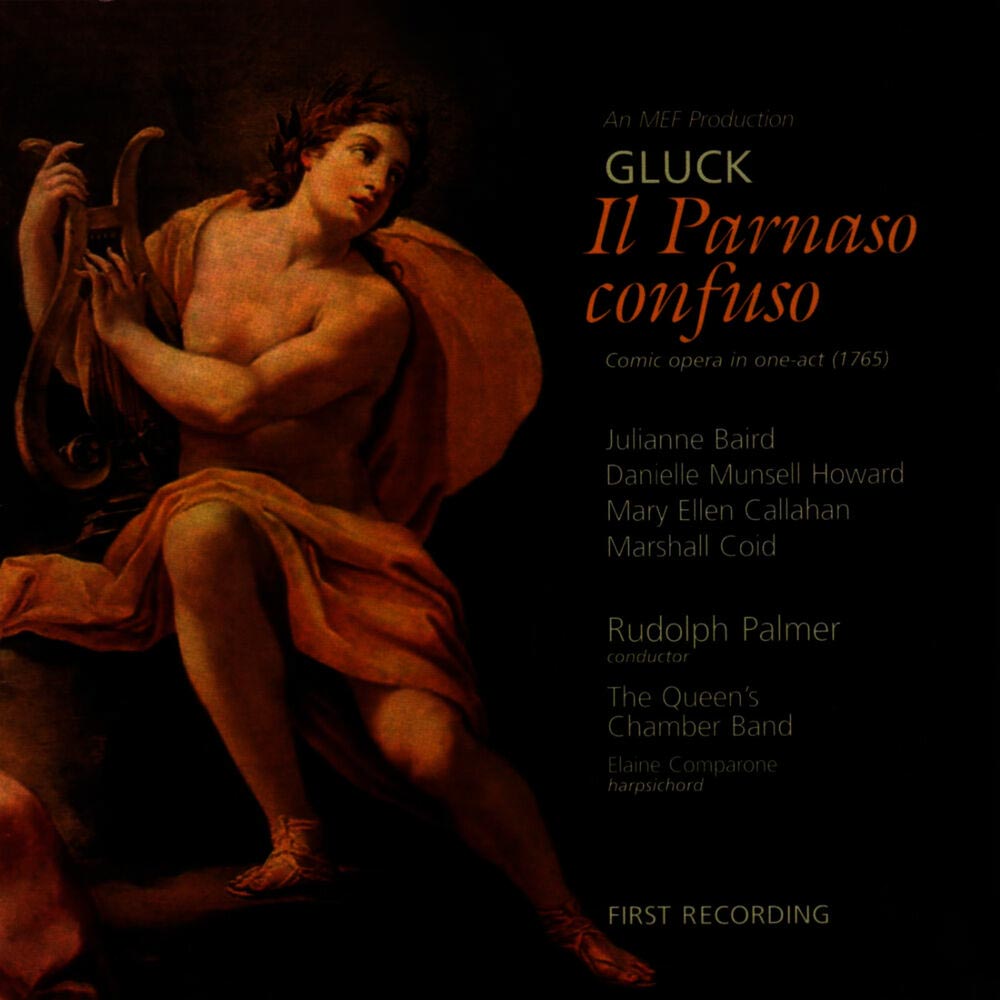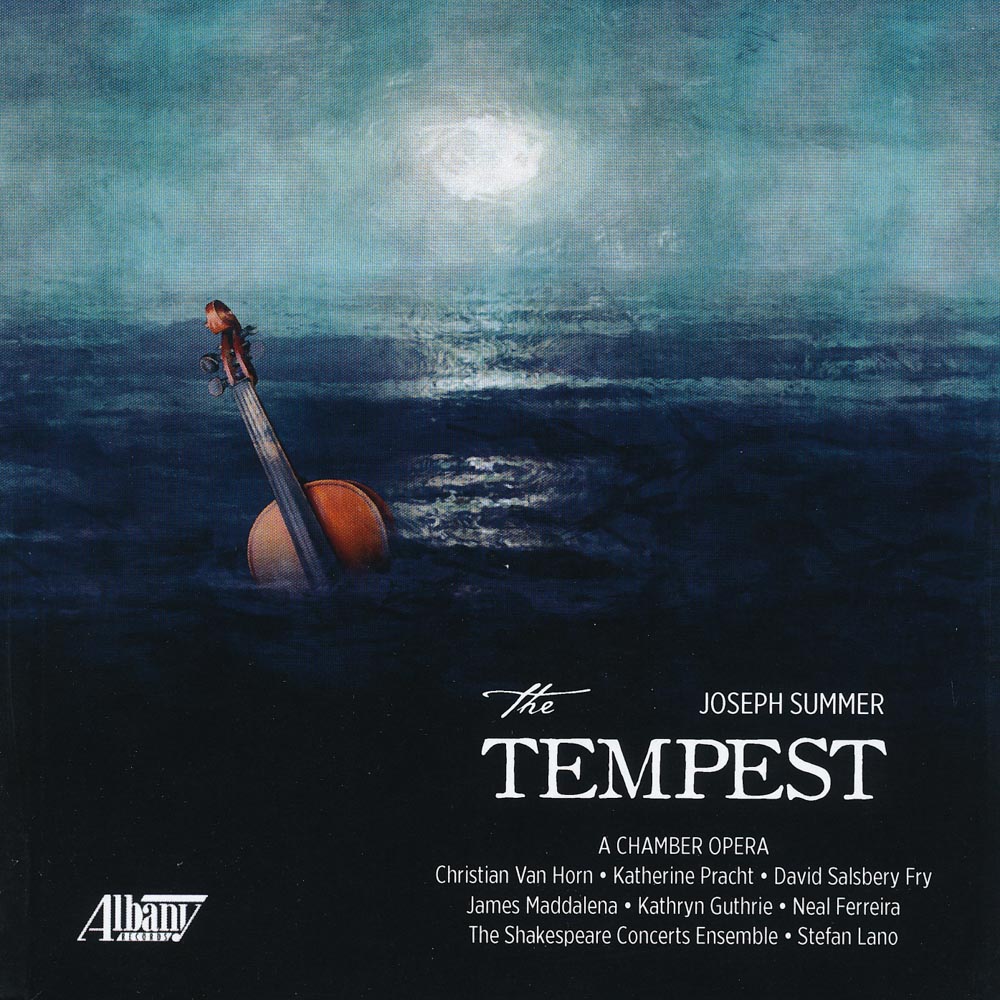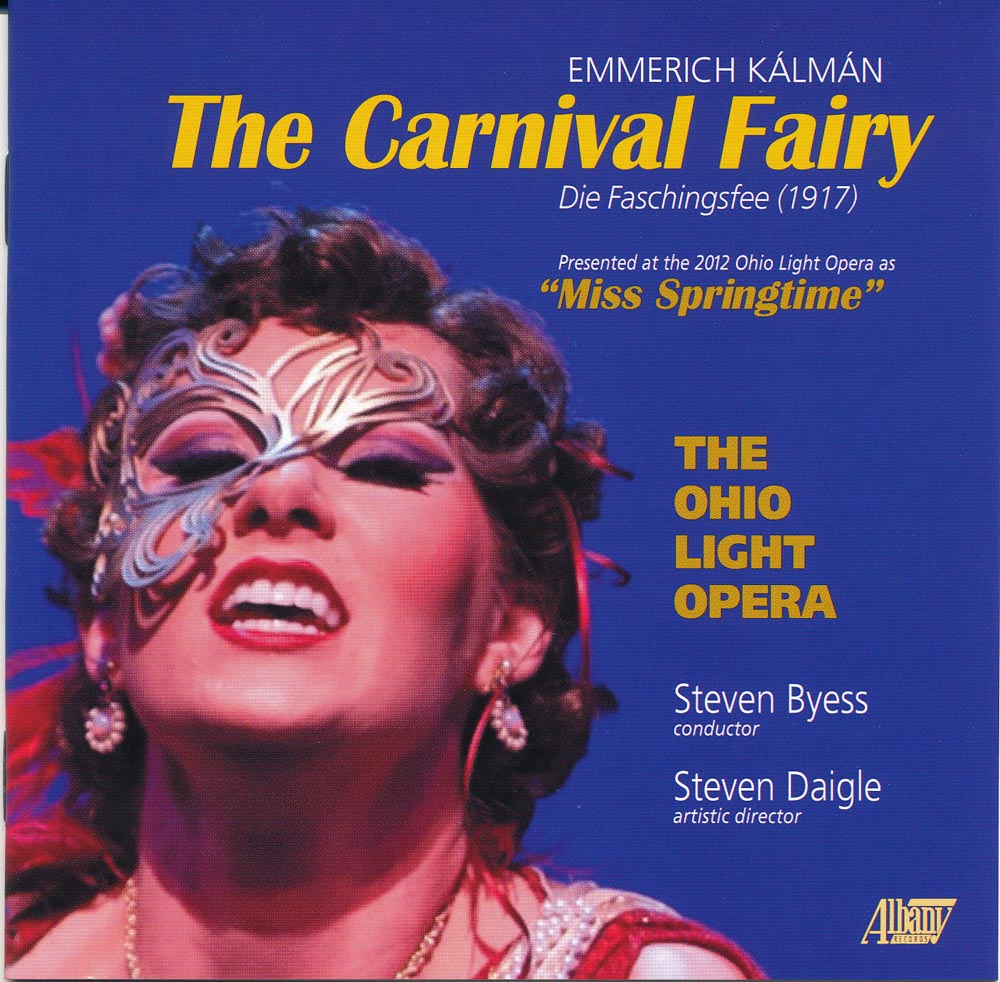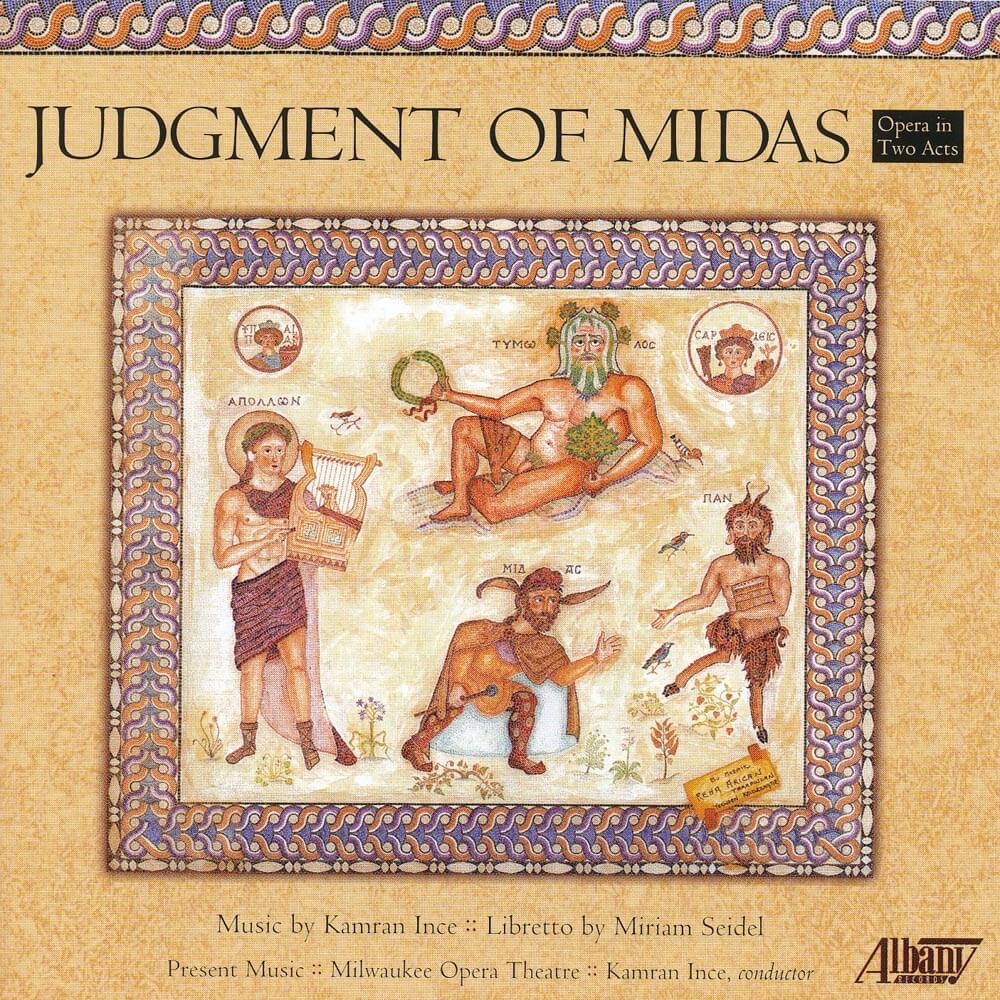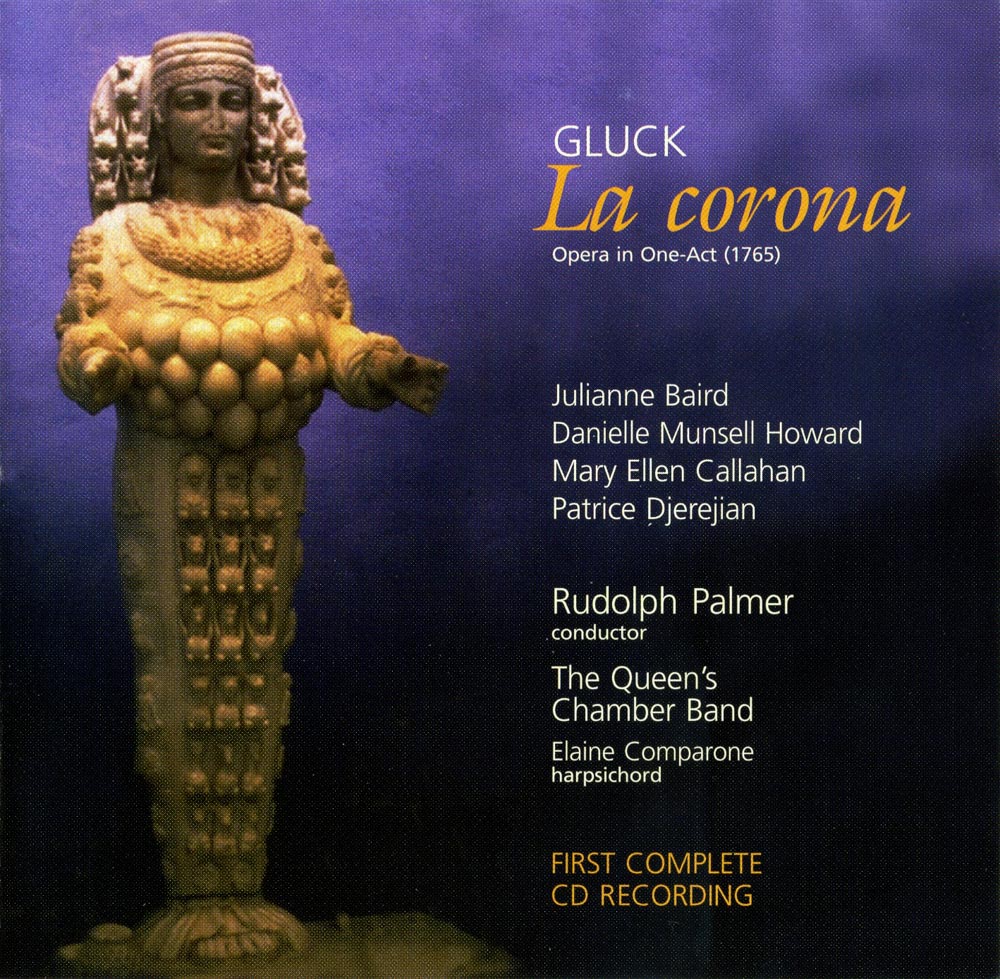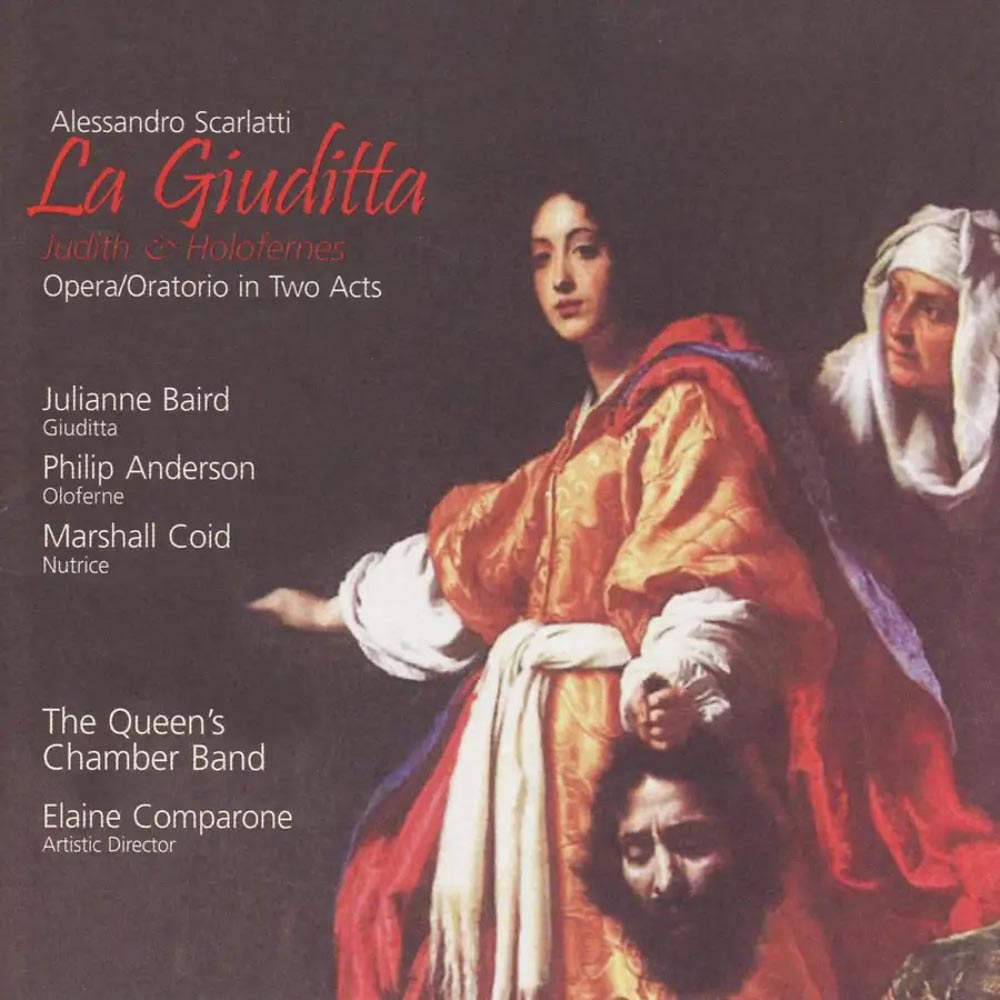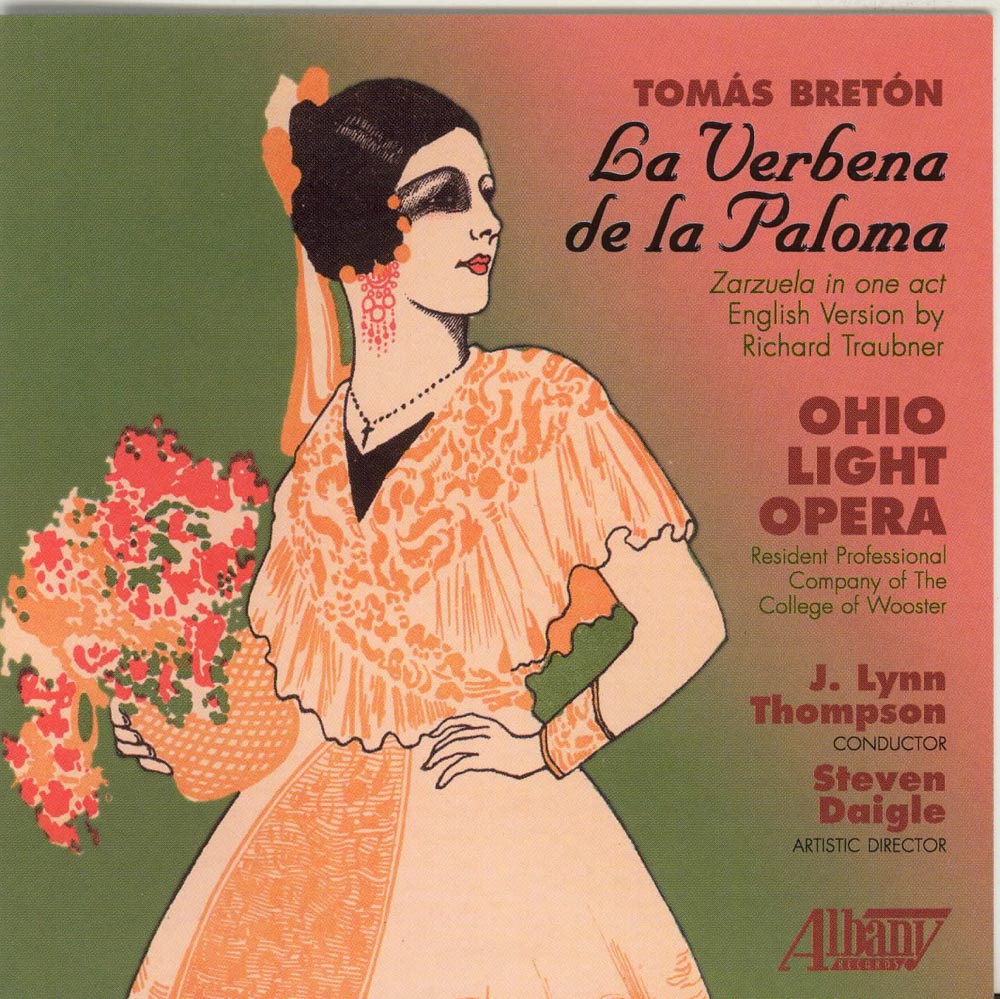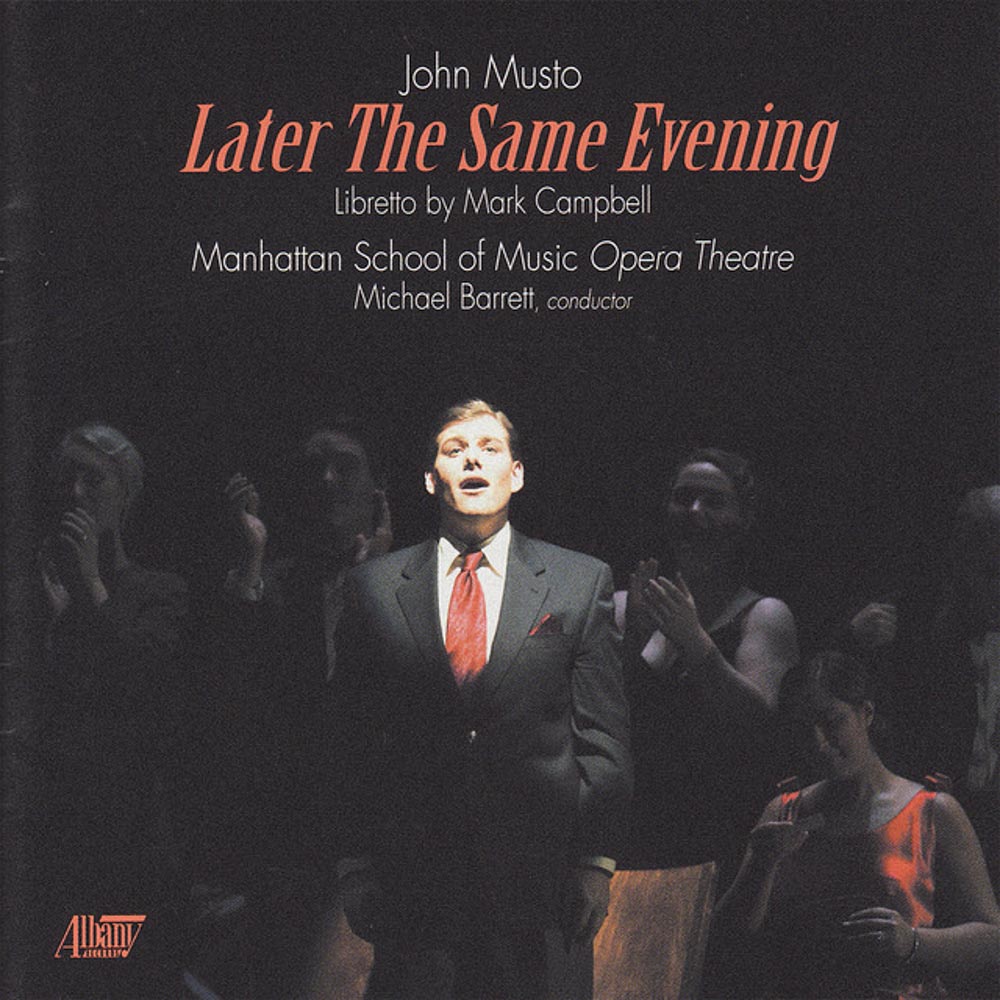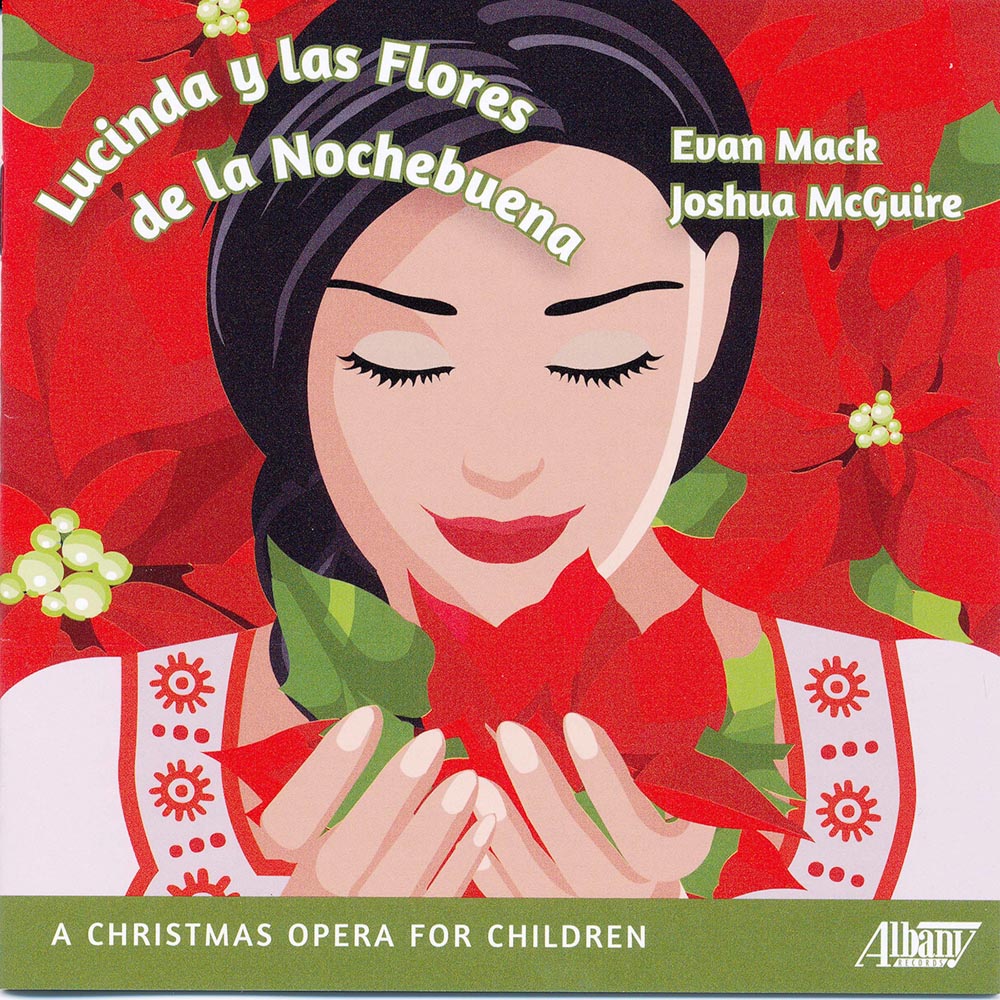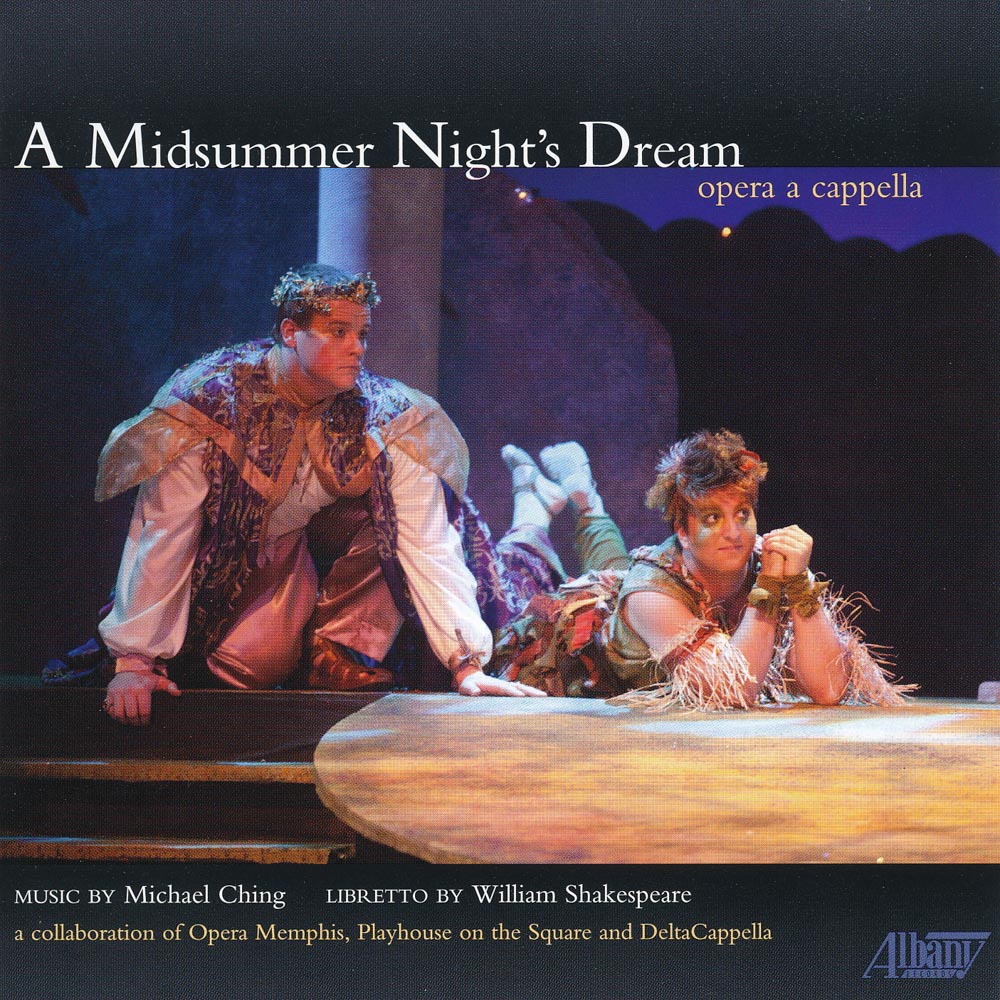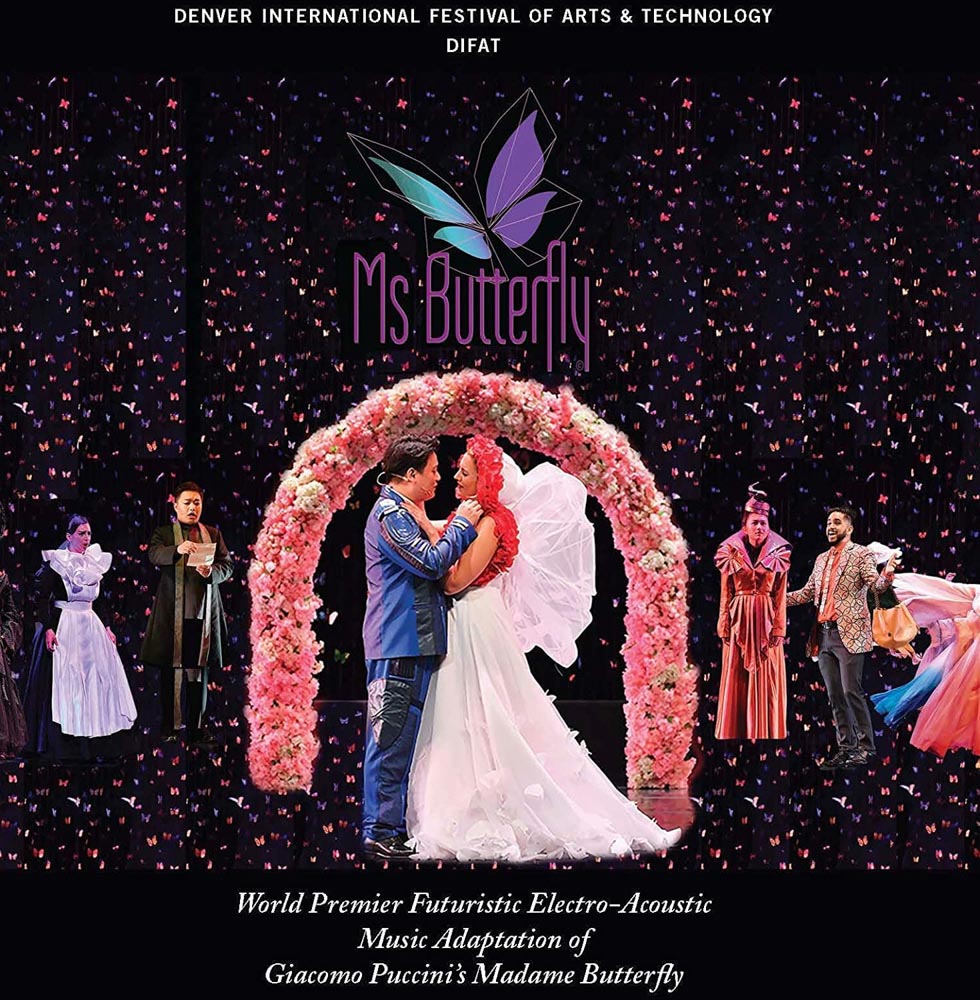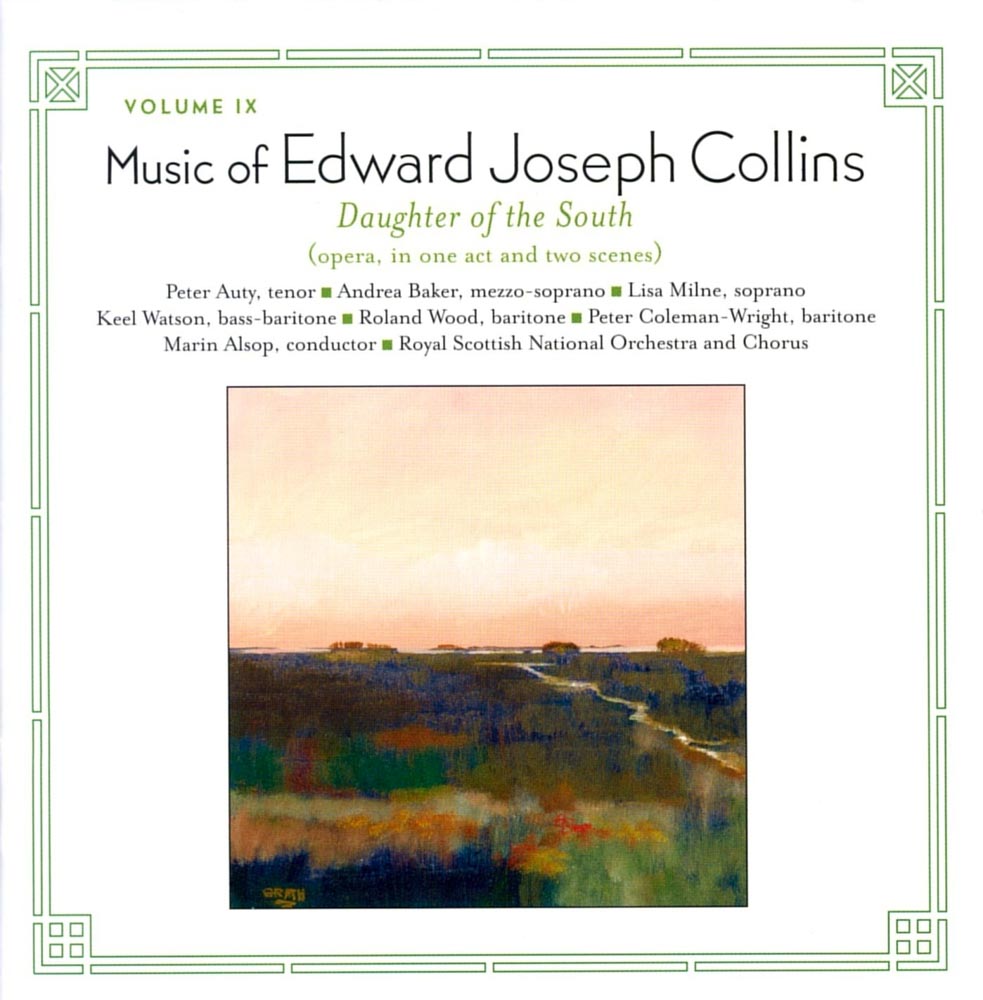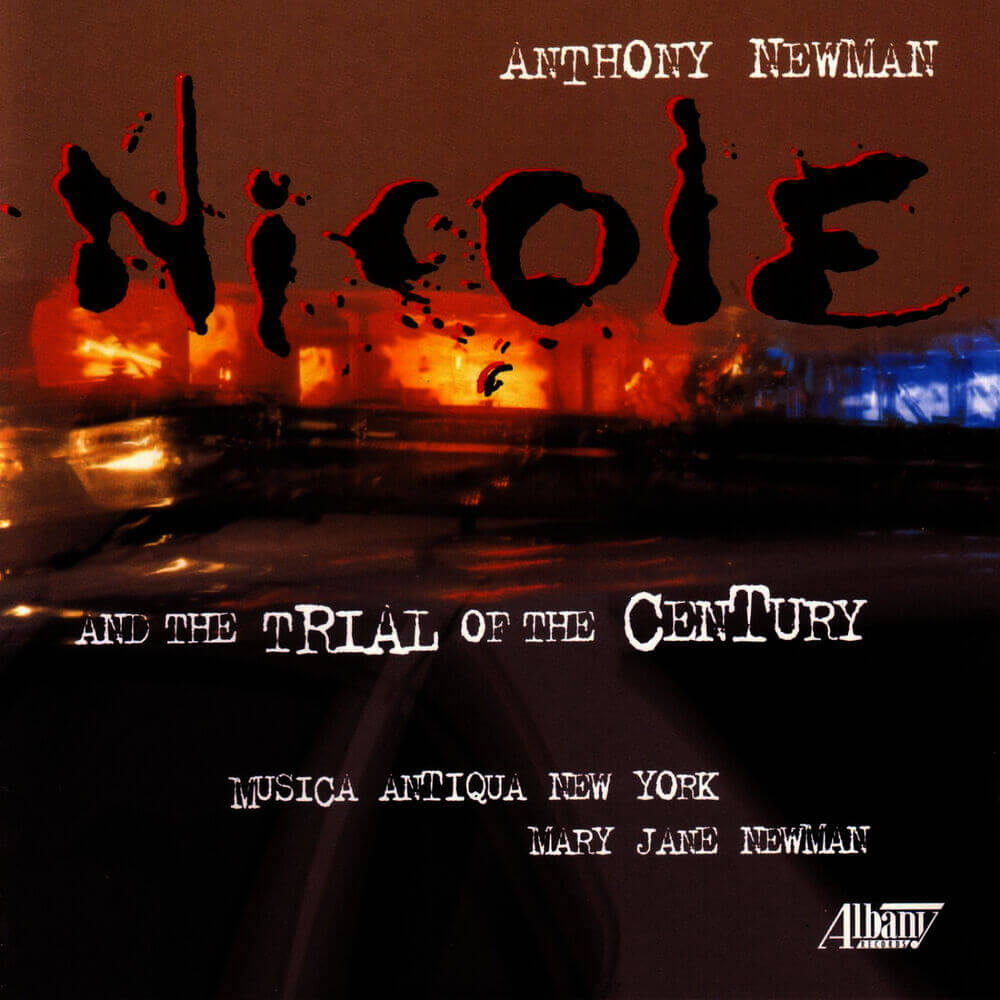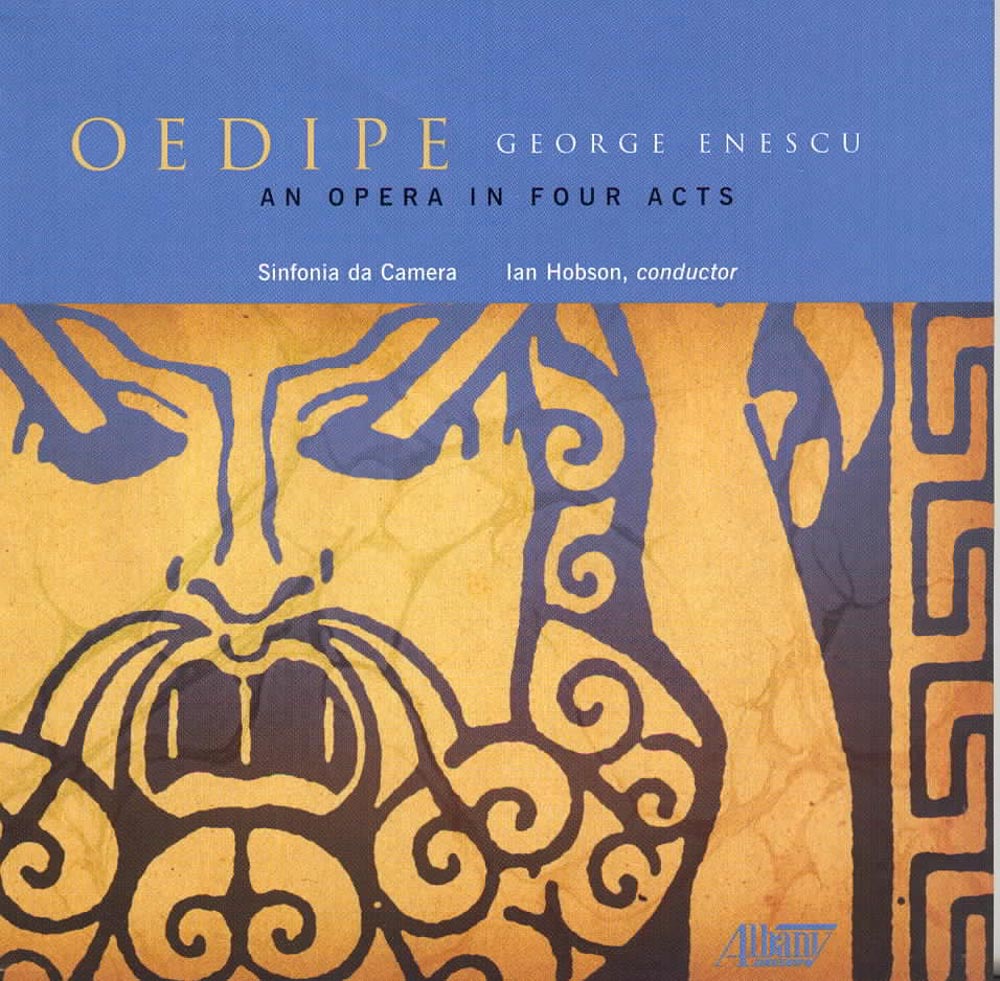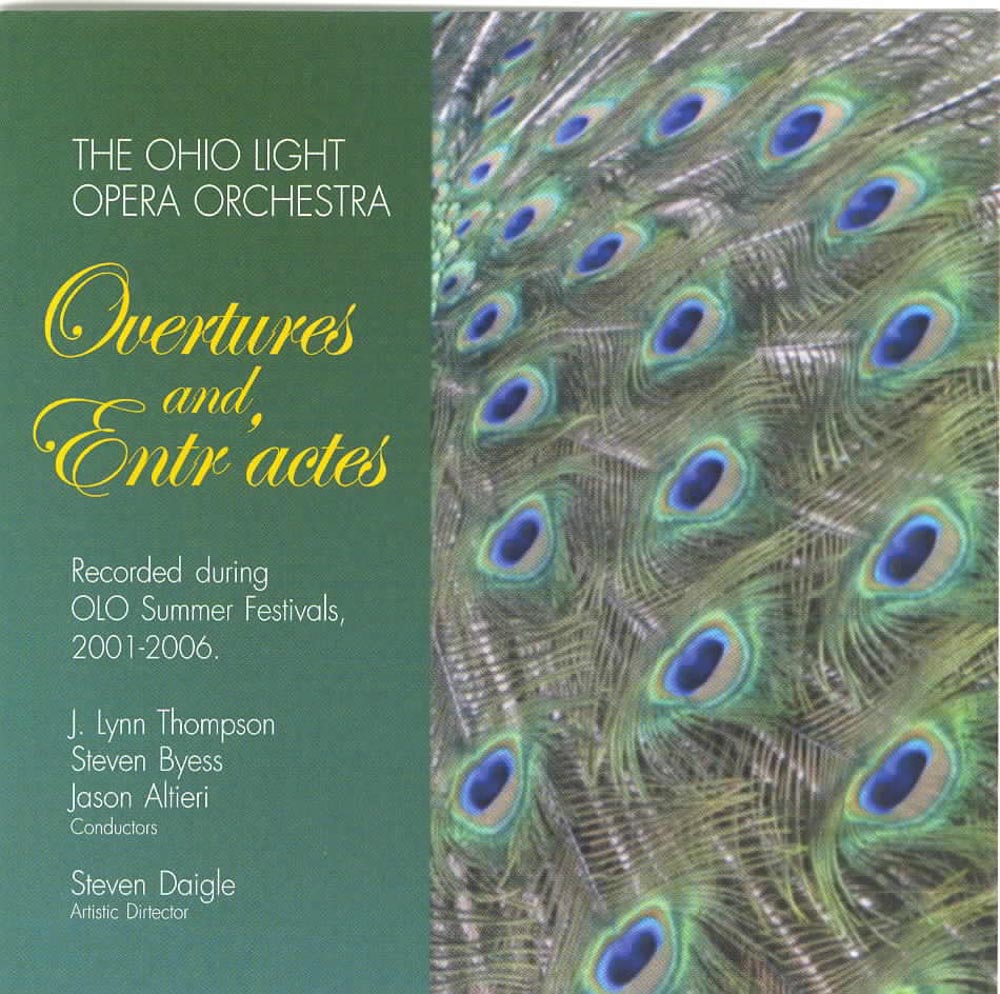Catalog #: TROY0531-32
Release Date: December 24, 2002Opera"My journey down the Amazon, the real and operatic one, began in the studio of my dear friend Alvaro Mutis. He knows the jungle intimately and has written about it all his life; at the same time he is a great lover of opera. The combination could not be better. We met many times in his studio. Prints of magnificent riverboats occupy the spaces normally reserved for family photographs. It was there that I learned about the dangers of river navigation, and also about the psychological states the Amazon induces in its travelers; the way it conjures up their most secret desires and deepest fears. In the opera, Florencia undertakes a journey that will bring her back to her origins. It is, I believe, the story of the return journey that we all undertake at a certain point in our lives: the moment when we look back at what we once dreamed of becoming, and then confront what we have now become. As Florencia sings her final aria, her voice, her song and she herself, become intertwined with the image of a butterfly. She breaks through her cocoon; her voice soars, her song acquires transparent wings. Love and beauty become indistinguishable from each other. The image of the butterfly, supremely beautiful from the moment of its birth, is overtly present at the end of Florencia. But it is an image that has been present in my mind as I composed several of my works. I have asked myself why. I think it is my way of understanding the moment when something is no more, my way of transforming it, like when I finish an opera, and say good-bye to characters that have lived with me for so long and have taught me so much, that grew out of me so I could be born out of them, that are, in the end, indistinguishable from myself." Daniel Catàn now lives in Los Angeles and is working on a new commissioned opera for Houston Grand Opera
Catalog #: TROY0965-66
Release Date: September 1, 2007OperaHow irresistible: a brand-new opera about the death of a fictional composer and his incomplete opera, his mysterious widow and her encounter with a musician who wants to finish it. Is murder involved? And it's suggested by a real life encounter between Leonard Bernstein and Alban Berg's widow! All of this awaits you in Frau Margot by America's most renowned opera composer, Thomas Pasatieri.
Catalog #: TROY0814-15
Release Date: December 1, 2005OperaEager to capitalize on the 1875 success of Trial By Jury, impresario Richard D'Oyly Carte organized the Comedy Opera Company, Ltd., and commissioned Gilbert and Sullivan to write a comic operetta. Drawing upon various sources, Gilbert fashioned a plot dealing with the effects of a love potion on an English village. Though Gilbert finished his libretto by April 1877, Sullivan, despondent over the death of his brother Fred, finished the score barely in time for the mid-November premiere at London's Opera Comique. The Sorcerer, satirizing both Victorian customs and theatrical devices, was a success and ran 175 performances; this was to lead to the next collaboration, H.M.S. Pinafore. Once again, Albany is proud to present another wonderfully sparkling performance by the renowned Ohio Light Opera Company, the first complete CD set incorporating Gilbert's hilarious spoken dialogue. Those who have come to know and love the acclaimed series by this group are in for an absolute treat!
Catalog #: TROY1265
Release Date: April 1, 2011OperaCommissioned by Dicapo Opera Theatre, Thomas Pasatieri's charge for God Bless Us, Every One! was to bring the cast of characters to the shores of America. God Bless Us, Every One! suggests what might have happened 20 years after the famous final line of Dickens' original tale. The libretto combines the characters from A Christmas Carol with the plot of another Dickens' story, Doubledick, and mixes them all into the turbulent years during the American Civil War.
Catalog #: TROY1459-60
Release Date: December 1, 2013OperaThis recording of the hilarious Gilbert & Sullivan 1878 comic opera was made at the 2013 Ohio Light Opera Festival and includes complete music and dialog. H.M.S. Pinafore has been the most frequently performed work at the Ohio Light Opera and an audience favorite on both sides of the Atlantic since its initial run.
Catalog #: TROY0173
Release Date: September 1, 1995OperaAny disc that contains the music of the wonderful American composer Douglas Moore, is a welcome addition to the catalog. Mr. Moore (1893-1969) composed "Gallantry" in 1957 and it was first performed in March 1958 at Columbia University on a double bill with Dominick Argento's "The Boor." The libretto by Arnold Sundgaard is a parody of television soap operas, reminiscent perhaps of the once popular "Young Doctor Malone," complete with commercial interruptions for Lochinvar Soap, the soap of silken supremacy, and Billy Boy Wax, the waxy wax that spells relax, which are sung by a female announcer assisted by three dancers called the Billy Boy Girls. The parody came full circle on August 30, 1972, when CBS broadcast a production of "Gallantry" on its television network. Menotti's "The Telephone" was composed in 1946. It was premiered by the Ballet Society of New York at the Heckstar Theater in February 1947, on a double bill with the same composer's "The Medium" It proved so successful that three months later, it began a long and successful run on Broadway at the Ethel Barrymore Theater. Hindemith composed his "There and Back" in 1927. It was first performed in the United States at the inaugural season of Tanglewood in 1940. Hindemith himself was one of the pianists in the pit orchestra.
Catalog #: TROY1312
Release Date: January 1, 2012OperaAs Susan Hawkshaw points out in her notes, Jack Beeson is primarily known for his large scale opera, Lizzy Borden, premiered and revived by the New York City Opera. But actually five of Beeson's ten operas are chamber operas because of the scale of the story. The two operas on this recording fall into this category. They are gems of vocal beauty, formal construction and evocative musical writing that deserve wider recognition and a fresh performance. They stand as major contributions to the corpus of 20th century American opera. More than 30 years separate these two operas: Hello Out There, written when Beeson was 32, was premiered in 1954 and Dr. Heidegger's Fountain of Youth, written with librettist Sheldon Harnick, was premiered in 1978.
Catalog #: TROY0432
Release Date: February 1, 2001OperaWe are so pleased to be able to offer this month the first complete CD recording of Victor Herbert’s beloved two-act classic romantic operetta, composed in 1910 and set in New Orleans. This performance was recorded live at the Ohio Light Opera 2000 Summer Festival by John Ostendorf. About this production, James Stuart, the founder of the Ohio Light Opera Company writes: “For summer 2000, Steven Daigle approached me in planning his first full season as Artistic Director. He wanted to undertake Marietta. He felt we should try to go back to the original materials and produce the show that had earned Victor Herbert such a triumph, with its beautiful melody, its tenderness, humor and resounding choruses. Steven’s mounting of the opera was a grand success. In its original form the relation of parts to one another makes much more sense. Free of excesses, the emphases now seem to fall in their proper places: the show is much tighter and the wonderful songs, following one on top of the other, leave the listener breathless.”
Catalog #: TROY0734
Release Date: March 1, 2005OperaIt, regrettably, comes as a surprise to many, including highly informed and well-trained musicians that among the most important of the compositions of William Grant Still are his several operas. (NOTE: The Eileen Southern Biographical Dictionary of African American and African Musicians of 1982 lists six operas, but in fact there are nine). In addition to Highway One on this recording, there are also the operas: Blue Street, Troubled Island, A Bayou Legend, A Southern Interlude, Costaso, Mota, The Pillar, and Minette Fontaine. Judith Anne Still writes: "I will say this, my father had three loves in his life, in this order of importance: the Creator, his family, and the world of opera. He wanted most of all to be known as a composer of operas of great merit. He worked towards this goal with all his heart and mind, from the age of 14 until he became ill in the early 1970's, for 75 years. Most opera companies in the 20th century would not do the operas of William Grant Still because of his color. The fact that Still operas were not done, while Porgy was done, broke the composer's heart. There is much to be accomplished by way of justification. I am grateful to my parent's for dedicating this opera to me and my family, and to Louise Toppin, Philip Brunelle and VIDEMUS for putting their enormous talents and energies into this project. Bravo to the immortals who have opened the road to realizing the long-ago dream of a kind, noble and magnificently gifted man."
Catalog #: TROY1028
Release Date: May 1, 2008OperaTwo one-act operas by the incomparable Lee Hoiby: Bon Appétit! was written for Jean Stapleton in her late career with music draped over the words and gestures of Julia Child, the mother-of-all foodies. This is the Rill Speaking, with libretto by Mark Shulgasser, is based on a seminal early work by playwright Lanford Wilson, first produced in 1965. It is of the genre of plotless, multivocal evocations of the 20th century small town. Into this theme Wilson introduced that of the birth of the writer, and his short play observes the seed of creativity. Hoiby's musical setting is water to that seed, bringing forth new branches, leaves and berries.
Catalog #: TROY0655
Release Date: March 1, 2004OperaHere we have the first complete recording of Gluck's charming one-act serenata teatrale for chamber orchestra and four treble voices, composed for the marriage of Hapsburg Archduke Joseph in January 1765. The Archduke's first wife had died. This time he was to marry the Bavarian princess, Maria Josepha. For this performance of the new Gluck work, four of the Archduke's daughters from his first marriage who were all accomplished musicians, sang roles in the new work. The new bridegroom's younger brother Leopold, conducted. That the four Archduchesses could successfully negotiate the florid soprano roles Gluck fashioned for them, is most impressive. One presumes that the youngest daughter, Marie Antoinette, was not so gifted. The serenata teatrale was presented as a surprise to the newly weds at Schonbrunn Castle in Vienna in the presence of the rest of the Hapsburg court. It was deemed such a success, that on the spot, Gluck was asked to compose another opera. The result was La Corona. The work was planned for November, but because the Emperor died suddenly, the work was not performed.
Catalog #: TROY1819
Release Date: June 10, 2020OperaChinese-born American composer Lei Liang is the recipient of numerous awards and commissions including the Rome Prize and the Grawemeyer Award. On the faculty at the University of California, San Diego, Liang studied at the New England Conservatory and Harvard. Inheritance, his chamber opera with libretto by Matt Donovan draws attention to the hopelessness associated with gun violence in the United States, exploring the psychological effect on one of the heirs to the fortune made by the Winchester rifle, Sarah Winchester. The role of Sarah Winchester is performed by the extraordinary soprano Susan Narucki, who has presented more than 150 world premieres in opera, concert and recording. The opera is cast for three female voices, a male voice, and a chamber ensemble conducted by Steven Schick.
Catalog #: TROY1609-10
Release Date: December 1, 2015OperaComposer Joseph Summer, who has been fascinated with Shakespeare for most of his life, has composed The Tempest, using a libretto written by his daughter, Eve Summer. Summer is founder and executive director of The Shakespeare Concerts, which presents recitals and recordings of music inspired by the immortal bard. Summer comments that "Everything that Shakespeare limned in The Tempest is about the life of my family, in fine detail. It's not as if incidents of The Tempest make brief appearances, or indeed, happen only once. The plot elements embrace us repeatedly." He goes on to relate his family's banishment from Tennessee; sojourns on desert islands; and being adrift in the Indian Ocean.
Catalog #: TROY1391-92
Release Date: December 1, 2012OperaThe Ohio Light Opera performs Emmerich Kálmán's delightful three-act operetta in a new English performance. Written by Kálmán in 1915 and called Miss Susie, producers from Broadway secured the first international rights. In 1916, with English lyrics by novelist P.G. Wodehouse, the show opened at the New Amsterdam Theater as Miss Springtime and ran for 227 performances. Spurred by this success, Kálmán sought a German language libretto to adapt Miss Susie for Vienna, where it opened in 1917 and was called The Carnival Fairy. Subsequently mounted in Berlin with significant rewrites by Kálmán, this version in a new English translation is the one used for the Ohio Light Opera production.
Catalog #: TROY1562-63
Release Date: May 1, 2015OperaThe opera Judgment of Midas was commissioned by Crawford Greenewalt, Jr. to mark the 50th anniversary of the Sardis excavations in Turkey. Composer Kamran Ince took two stories, inspired by a tale from Ovid's Metamorphoses, as the basis for the opera. The stories interweave around the ancient city of Sardis and a mythic music contest said to have happened there. Turkish/American composer Kamran Ince's music bridges Anatolia and the Balkans to the West. The energy and rawness of Turkish and Balkan folk music, the spirituality of Byzantium and Ottoman court music, the tradition of European art music and the extrovert and popular qualities in the American psyche are the base of his sound world. Acknowledged as one of America's best composers, Ince is Professor of Composition at the University of Memphis and at MIAM Center for Advanced Research in Music in Istanbul. His numerous prizes include the Rome Prize, the Guggenheim Fellowship, the Boulanger Prize and the Arts and Letters Award in Music from the American Academy of Arts and Letters. His extensive discography appears on Warner Classics, Naxos, Innova, Argo/Decca, and Albany Records.
Catalog #: TROY0791-92
Release Date: September 1, 2005OperaBy his mid-twenties Gluck was already writing operas, set to the libretti of revered Italian dramatist Pietro Metastasio. By 1750 he had settled in Vienna. The young composer was soon engaged at the Burgtheater in Vienna to tailor French operas and opera-comiques to Austrian taste (frequently inserting selections of his own music). The Hapsburg royal family, Empress Maria Theresa in particular, was very fond of the composer. Gluck had composed music for regal birthdays and namedays and participated in the celebrations for the second marriage of the eldest son Archduke Joseph in January 1765. For the wedding festivities Gluck had been commissioned to supply a short opera with Metastasio's libretto. Four of Maria Theresa's daughters were accomplished musicians and sang in that new work, Il Parnaso confuso (available on TROY655). This was such a success that another work was commissioned: La Corona. But due to the Emperor's sudden death, the work was not presented; Gluck never heard it, and it was not performed until our own time. The work, based on a Greek myth dealing with a dispute over who shot the fatal blow during a hunt for a wild boar terrorizing a kingdom, has a clarity and a directness which is both refreshing and new. Gluck's stated credo, "I believe that my greatest labor should be devoted to seeking a beautiful simplicity, to avoid making displays of difficulty at the expense of clearness" applies very well to this lovely score. Opera lovers will rejoice at this presentation, another in this wonderful series featuring Julianne Baird and her stellar companions. And, as a delightful bonus, two examples of Gluck's relatively small chamber output are included as the perfect encores.
Catalog #: TROY0904-05
Release Date: January 1, 2007OperaThis biblical story, with its historical references to specific cities, generals and kings, is accepted as canon by Roman Catholic theologians, although it doesn't appear in either Hebrew or Protestant scriptures. The Book of Judith is set in the time of the mighty Assyrian ruler Nebuchadnezzar, King of Nineveh. Seeking to expand his empire, the king sends armies, led by General Holofernes (Oloferne), to subdue neighboring kingdoms, all of whom surrender under his powerful forces. The only ones who refuse to capitulate are the Israelites, who cordon off their mountain passes and gather provisions to resist a siege. Instead of a massacre, Holofernes discovers and commandeers their water sources. Faced with drought, the elders of Israel prepare to surrender. Their leader, Prince Ozias, suggests a five-day wait, during which interval Israel's prayers for help may be heard by God. It is at this point that Scarlatti's oratorio takes up the story, depicting the entrance of the pious Judith (Giuditta) who will distract Holofernes until she is able to slay him and make her escape, displaying his severed head, causing the enemy to retreat, sparing the Israelites. Scarlatti's score is in the Italianate style of the period, and the work is largely continuo-driven, with string ritornelli concluding most of the arias. This stellar performance, with the renowned Julianne Baird in the role of Judith/Giuditta, brings this remarkable story to blazing life.
Catalog #: TROY0405
Release Date: August 1, 2000OperaRichard Trauber who made the English translation of this work writes: "Spanish operetta is technically older than any other European operetta form, taking its name from the Zarzuela Palace outside Madrid. Zarzuela went through various transformations over succeeding decades, taking on attributes of other European musical-theater forms: Italian grand and comic opera, French opera-comique, operetta, and even revue. Tomas Breton's The Festival of Our Lady of the Dove is widely regarded as perhaps the most perfect of all short zarzuelas. The music heard on this recording is exactly what was heard in 1894, with a very close English approximation to the original Spanish libretto (included). In addition, we have added a typical operetta finale to the work."
Catalog #: TROY1109
Release Date: April 1, 2009OperaJohn Musto's one-act opera, Later The Same Evening is set in Manhattan in the 1950s and was inspired by a series of paintings by Edward Hopper. Later the Same Evening enjoyed a New York premiere at the Manhattan School of Music. The New York Times lauded "Mr. Musto's musical-theater-like score, which features recurring marimba riffs, chromatic interludes, fugal passages and hints of blues and jazz." Musto's music displays a rare and creative integration of all the idioms available to the 21st century composer.
Catalog #: TROY1811
Release Date: March 1, 2020OperaLucinda y las Flores de la Nochebuena is a children's opera with music by Evan Mack and libretto by Joshua McGuire. The concept was conceived at a National Opera Association Convention when Mack, McGuire, and director Anthony Radford agreed that operas for children were missing from new American opera. Subsequently California State University at Fresno commissioned a 45 minute opera that could tour schools and be performed in opera houses. The result is Lucinda y las Flores de la Nochebuena -- a multicultural Christmas opera for all ages. Since its premiere in Fresno, Lucinda has been produced all over the United States and seen by more than 20,000 children. Composer Evan Mack, a member of the faculty at Skidmore College, has devoted much of his compositional life to opera and song. Mack was named 2018 Professional of the Year by Musical America and was a composing fellow at the John Duffy Composers Institute. Librettist Joshua McGuire has collaborated with Evan Mack on numerous operas. He was commissioned in 2015 to write a libretto for Washington National Opera's American Opera Initiative. His is an author as well as being on the faculty at Vanderbilt University.
Catalog #: TROY0832
Release Date: April 1, 2006OperaThomas Mann's extraordinary novella Mario and the Magician was written while he was vacationing on the Baltic seacoast, hard at work on his massive novel Joseph and His Brothers. An unpleasant incident that occurred down on the beach inspired Mann to create an ominous allegory about the rise of fascism and the Nazi blight that was beginning to affect Germany at that time. American composer Francis Thorne's interest in Mario goes back to 1963, when he discussed with Mann's daughter, Elizabeth Borgese, the possibility of an opera. Permission was granted, and work began with librettist Chester Kallman, but delays forced inevitable changes. Years later, Thorne would work with J.D. McClatchy (librettist, incidentally, for Tobias Picker's Emmeline [TROY284/5]). The work was premiered March 12, 1994. Thorne himself is part of that great generation of American composers born in the 1920s (others being Donald Erb, Leonard Rosenman, and the late Meyer Kupferman and Jacob Druckman) who came to prominence in the late 1940's and early 1950s, writing strongly accented music often with prominent jazz influences. Thorne's first professional job was as a jazz pianist at New York's famed Hickory House, with Duke Ellington's recommendation. He later studied with David Diamond. His output includes concertos, symphonies, chamber music and songs both "classical" and pop. He was also principal founder of the American Composers Orchestra, and has served on the boards of CRI Records, The Virgil Thomson Foundation and the MacDowell Colony. Mario and the Magician is his only opera.
Catalog #: TROY1507-08
Release Date: August 1, 2014OperaAn opera without an orchestra? Composer Michael Ching's A Midsummer Night's Dream - opera a cappella deploys a "voicestra" of a cappella singers rather than instruments in the pit. Heidi Waleson of the Wall Street Journal wrote in her review that this "remarkably inventive opera is a celebration of what voices can do and still, with the exception of a few startling vocal percussion effects, sound like voices. The voicestra supports the singers on stage, its overlapping lines and syllables weaving around them, amplifying their characters and conflicts, sometimes echoing their words (or even their thoughts) or supplying atmosphere." MSND features the original Opera Memphis cast production of January 2011, produced by DeltaCappella, mastered by Tony Huerta, and recorded in legendary Ardent Studios in Memphis, The result is a spellbinding blend of voices that uniquely captures the romance and otherworldliness of Shakespeare's A Midsummer's Night Dream for today's audiences. The passion and finesse of opera, the vernacular phrasing of musical theatre, and the organic voicing of contemporary a cappella all combine to create a unique and powerful fusion of traditions that provide a novel and beautiful listening experience that illuminates the libretto with what Waleson calls "a human dimension."
Catalog #: TROY1613
Release Date: January 1, 2016OperaIt is the obsession of musicologist Hans Moldenhauer to uncover the truth in the killing of Anton Webern by American soldiers in 1945 that drives The Death of Webern, the second collaboration between composer Michael Dellaira and librettist J.D. McClatchy. Webern's brief, luminous compositions altered the course of 20th century music and Dellaira's score contains some wonderful moments of homage as well as moments when Dellaira's writing approaches a Webern-like aesthetic. Dellaira, however, is not beholden to a single style -- he veers seamlessly from dodecaphony to lyrical tonality, from severity to wistfulness and nostalgia, from a passage of lovely Bach-like polyphony to lines reminiscent of 20th century minimalism. Michael Dellaira's other operas include The Secret Agent, which won the Armel International Opera Festival's Laureat. Chéri was a finalist for the American Academy of Arts & Letters Richard Rodgers Award and his monodrama Maud was awarded an ASCAP Morton Gould Award. This world premiere recording is performed by a cast and chamber orchestra from the University of Miami's Frost School of Music, conducted by Alan Johnson.
Catalog #: TROY1927
Release Date: April 1, 2023OperaMs Butterfly is a futuristic electro-acoustic music adaptation of Puccini’s Madame Butterfly, conceived, produced and directed by Dennis K. Law with music supervision by Zhou Jiaojiao; electronic organ orchestration by Wu Danxia; and analog synthesizer programming by David Wohl. Set in 2036, this blu-ray video of the adaptation of Madame Butterly has lavish sets, costumes, and sound taken from performances at the Denver International Festival of the Arts and Technology.
Catalog #: TROY1210
Release Date: August 1, 2010OperaThe only opera composed by Edward Joseph Collins, Daughter of the South, is set on a plantation on the Potomac River, near Leesburg, Virginia. The composer also wrote the libretto, the dramatic action commencing on the day the Civil War began and ending when peace was declared. Pondering what would be an appropriate opera for an American composer, Collins drew on his life-long interest in the Civil War and created an opera using the love story of a Southern beauty with a Northern boy as the basis of the libretto. The music shares many identifiable qualities with Collins’ other compositions for large ensembles, yet also makes more direct use of music styles from the popular culture of the 1920s and 30s, especially jazz and blues.
Catalog #: TROY0351
Release Date: January 1, 2000OperaFor three decades, the multi-gifted Anthony Newman has been in the public eye as one of America's leading organists and harpsichordists, and as a Bach specialist, composer, teacher, and scholar. About this world premiere recording Mr. Newman says, "The work is dedicated to the memory of Nicole Brown Simpson, and written as a statement against the spousal abuse of women. From the mountain of trial transcripts, as well as books and articles written about Nicole and O.J. Simpson, Raoul Cansino and I have written a libretto in 2 acts: the first tragic, the second comic. The individual songs are introduced by a speaker /reciter, accompanied by timpani, much in the manner of Stravinsky's Oedipus Rex. The recording presents a chamber version of this work, with the trial scene curtailed to accommodate the time constraints of a single CD." And the brilliant American composer, Lukas Foss has commented: "Nicole, an amazing musical in the Baroque style! No one recreates the Baroque with Mr. Newman's ease and musicality, modernizing it at the same time. A stunning creative achievement, and the perfect cross-over to the 21st century. Bravo!"
Catalog #: TROY0794-95
Release Date: December 1, 2005OperaAlva Henderson contributes wonderful recollections of his youth collecting classical and opera recordings in the 1950's, leading to comparisons and contrasts of studio and live recordings of operas. These annotations more than explain how Mr. Henderson came to love modern opera and how his creative path was chosen. This fascinating new release presents his and librettist Dana Gioia's interpretation of the classic 1922 F. W. Murnau silent film Nosferatu, probably still the most haunting and certainly most expressionistic vampire story in motion picture history. Though Henderson entered San Francisco State College in the 1960's for drama studies, he changed to music and studied under Wayne Peterson and Robert Sheldon. While supporting himself as a member of the San Francisco Opera Chorus, he completed his first opera, Medea. The 1972 San Diego Production brought him national attention. In the years that followed came the operas The Last of the Mohicans, The Tempest, The Last Leaf, The Room Across the Hall and Achilles. Dana Oland of the Idaho Statesman wrote, "The opera...is a success and a stunning addition to the world of contemporary opera. Henderson composed rich, luscious melodies to meld with Gioia's delicious poetry, written in English...an opera than can make English a poetic, operatic language. Henderson deserves acclaim for his brilliant and sweeping score." Here is a modern opera that is romantic and passionate with beautiful vocal writing.
Catalog #: TROY0861-62
Release Date: August 1, 2006OperaToday George Enescu's name means one thing to most listeners: The Romanian Rhapsodies, those stalwarts of symphonic "pops" albums since the days of 78's. But Enescu was much more: in addition to a large chamber and orchestral output that included three large Symphonies, he was considered one of the foremost violinists of the 20th century and a conductor important enough to be considered as Toscanini's successor at the New York Philharmonic. Important Romanian musicians such as Clara Haskil and Dinu Lipatti benefited from his encouragement. As evidence of his skills, we present this new performance of Enescu's Oedipe. Influenced by a 1909 performance of Sophocles' Oedipus Tyrannos, he worked on the opera sporadically from 1910 until the final orchestration of 1931. Edmond Fleg's libretto concentrates Sophocles' Oedipus the King and Oedipus at Colonos in the last two acts of the opera and precedes them with two more acts. Enescu considered himself a Wagnerian who also admired the music of Brahms. Along with a prevailing chromaticism one can also find here similarities with the music of his French teachers and colleagues. Oedipe was premiered in March 1936 at the Grand Opera in Paris to the great acclaim of most critics. Here is a remarkable opera that will shed a fascinating light on a composer too few people really know in depth.
Catalog #: TROY0621-22
Release Date: January 27, 2004OperaThe creation of Carlisle Floyd's Of Mice and Men was a long, rocky process - no other opera in this composer-writer's canon so exemplifies his almost mystical belief that its final form seemed to exist long before he uncovered it. "I never revised an opera more," Carlisle Floyd recalled as Of Mice and Men was enjoying a flurry of revivals at the turn of the new century, three decades after its premiere in Seattle in 1970. "I played the first act for Kurt Adler at the San Francisco Opera. He turned it down, for reasons I never understood, but I also completely rewrote the first act after that. Two years' work gone. I completely started over. New libretto, new music. It's the only time I ever did that. One thinks one knows what makes a workable libretto, and then it's clear that nothing works. In the next three years, I was able to salvage some of that original music. Maybe 25% of it found its way back into the completed score." Coherent revision is possible only within a musical language that fully reveals its composer's confidence. Remember, he was writing during the high tide of American serialism and academic snobbishness. His music was none of that. His rhythms evoke an agrarian life and his musical textures imply open space. Wide intervals sing of loneliness, and his tart instrumentation throws edgy shadows around any suggestion of joy or hopefulness. That music tantalizes with its rich references. But reference to what? No true folk tunes have been adapted; no real country dances echo in the background. Yet the music implies all that while finding its own way between traditional songs of the American earth and those craftily composed to incorporate the essence of native music. Carlisle Floyd's Of Mice and Men stands as complete and whole as a crystal sphere - seamless, polished, able to reflect inner and outer color. The intriguing creative process that went so wrong at the outset, found that perfect sphere and left us Of Mice and Men.
Catalog #: TROY0375-76
Release Date: May 1, 2000OperaSince its first appearance in 1975, Zhurbin's rock opera Orpheus and Eurydice has been the focus of enormous interest and attention. The reaction from the Soviet Communist Press and the official propaganda "apparatchiks" was negative and even scandalous. Somehow the work managed to survive all this - mostly because general audiences disregarded the "directives" from the Central Committee. There is an old Russian proverb which goes "people vote with their feet," which means the audience either comes to the performance or it doesn't. In the case of Orpheus the response was incredible. In some cities it was performed twice in one day, two weeks in a row at the sports arena with six to seven thousand tickets sold at every performance. One group gave it 2500 performances all over the Soviet Union and Europe. This two CD set is a remastering of the original cast album made in 1977 by the St. Petersburg Theater Rock Opera Group. About the Two Portraits, the composer writes: "My love for the great poetry of the two Russian poets from the first half of the 20th century - Marina Tsvetayeva and Velemir Khlebnikov - inspired me to write this music in an attempt to create some kind of "Musical Portraits." This set should have broad appeal to a wide group of listeners. It is really a "crossover" album.
Catalog #: TROY0952
Release Date: July 1, 2007OperaThe complete recordings of these works on Albany with the Ohio Light Opera have been a delight to all and we're happy to present this CD featuring their outstanding orchestra performing the wonderful melodies from these classic operettas.
Catalog #: TROY0732
Release Date: April 1, 2005OperaLuigi Mancinelli was a noted Italian composer of works for the stage, concert hall and church as well as for the early cinema. After studying in Florence, he served as an orchestral cellist before becoming a conductor at the Teatro Morlocchi in Perugia. As if to anticipate the celebrated rise to fame of Arturo Toscanini, Mancinelli stepped from his role as cellist to the podium to conduct Verdi's Aida, a feat which earned him an engagement as conductor at the Teatro Apollo in Rome where he appeared until 1881. Subsequently, his growing fame took him for conducting engagements to Paris, Milan, Bologna, Venice, London, Madrid and the Metropolitan Opera in New York. During his nine seasons as conductor there he led the first Met performances of Werther, Falstaff, Samson and Dalilah, Le Cid, The Magic Flute, La Boheme, Don Giovanni and Ernani, as well as his own opera Ero and Leandro. He also conducted in Rio de Janeiro, Buenos Aires and Lisbon - where he committed suicide in the aftermath of a bankruptcy. His works for the stage reflect a dramatic temperament. His first opera Isora di Provenza succeeded in Bologna in 1884, but failed in Naples in 1886. His next opera, Ero and Leandro, brought him international attention via premieres in London and New York, its libretto by the admiring composer and librettist, Arrigo Boito. Paolo and Francesca from 1907 failed - in part due to the unfashionable idealism and classicism of its libretto in an era when the ideals of verismo opera, championed by Mascagni, Leoncavallo and Puccini, were exciting audiences every where. However, the music of Paolo and Francesca is both rich in texture and has moments of real inspiration.
Catalog

©2024 Albany Records. All rights reserved. | Privacy Policy | Website by PARMA Creative.
